2017: Varkh made using Leather Banned
|
|
The Food Safety and Standards Authority of India via a Notification declared that Silver Leaf or Chandi-ka-warq "shall not be manufactured using any material of animal origin at any stage" after 1 August 2017. BWC spent decades investigating, creating a public awareness, and convincing the Government of India to declare that varkh must be machine-made without using leather. |
|
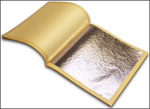
|
|
2017: Ban on Manja
|
| The National Green Tribunal imposed a nationwide ban on manja used for flying kites. All states have been directed to prohibit its "manufacture, sale, storage, purchase and use". For decades BWC had been campaigning against the use of manja which often resulted in grave injuries and even death to birds – animals and humans too.
|
|
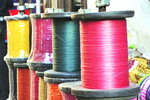
|
|
2015: Bulbul-fights Banned
|
|
Following Beauty Without Cruelty’s complaints to the Environment Ministry officials, in January 2015, Assam banned bulbul-fights. The state also prohibited the traditional Bhogali/Magh Bihu cock and buffalo fights in compliance with a Supreme Court order. |
|
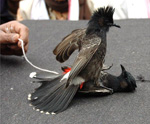 |
|
2014: India joins over a dozen countries that have banned the Import of Foie Gras
|
|
In response to BWC’s request, in July 2014 the Government of India prohibited the import of Foie Gras – liver of ducks, geese or guinea fowls. Its production is extremely cruel: ducks are force fed several times a day with a funnel pushed down their throats till such time as their livers get ten times their normal size. They are then slaughtered and their diseased livers turned into a paste called Pâté de Foie Gras, consumed by gourmets.
|
|
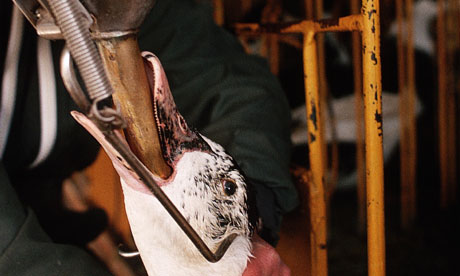 |
|
2013: Plans to set up Dolphinariums dropped
|
|
In May 2013 on grounds of cruelty and commercialisation of wildlife the Ministry of Environment & Forests eventually rejected all proposals to set up dolphinariums in India. BWC’s first appeal about this was before the dolphin park at Mahabalipuram came up – and closed when the imported dolphins and sea lions died.
|
|
 |
|
2011: End to Elephant Polo in India
|
Argument citing illegality worked!
BWC effectively brought elephant polo to an end in India. In 2009 the Government of India had directed all captive elephants to be transferred to the Forest Department, and in 2010 the elephant had been declared as India’s heritage animal, thus BWC pointed out that the proposed elephant polo match at Jaipur was illegal. BWC was first successful in convincing the main sponsor to withdraw, following which, the state government was approached to cancel the event. The Royale Indian Rail Tours Ltd was also informed that it was illegal for them to promote exhibition elephant polo matches as part of the Maharajas’ Express Royal Sojourn.
|
|
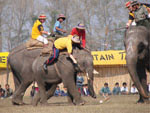 |
|
2009 & 2014: 50% Less Animals Sacrificed at Gadhimai Mela, Nepal
|
|
Less Animals Beheaded
BWC could not stop the mass slaughter of animals sacrificed at the Gadhimai Mela, Nepal, but with help extended by the Government of India, managed to reduce 50 percent of animals beheaded.
Again in 2014, about 50% buffaloes, goats and chickens from India that were scheduled to be killed were saved.
Nevertheless in July 2015, it was a victory for animal rights activists when under pressure of a Supreme Court of Nepal injunction won on 24 November 2014 by the Nepal Animal Welfare & Research Center, the Secretary of the Gadhimai Temple Trust declared “We have decided to completely stop the practice of animal sacrifice.” |
|
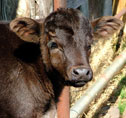 |
|
2009: Hinsa vs. Ahinsa e-mailers launched
|
|
|
|
Based on BWC’s motto, Hinsa vs. Ahinsa was launched on e-mail for our members and others, with the view of regularly creating an awareness on different aspects of animal exploitation.
| |
 |
|
2008: Beauty Without Cruelty’s Phonetic Alphabet
|
BWC developed the following Phonetic Alphabet for use by animal activists. It was printed in Compassionate Friend and is available as a bookmark.
|
|
| A |
Animal |
H |
Horse |
O |
Ox |
V |
Vulture |
|
| B |
Bird |
I |
Insect |
P |
Parrot |
W |
Whale |
| C |
Cow |
J |
Jaguar |
Q |
Queen bee |
X |
X-Ray fish |
| D |
Dog |
K |
Kangaroo |
R |
Rabbit |
Y |
Yak |
| E |
Elephant |
L |
Lion |
S |
Sheep |
Z |
Zebra |
| F |
Fox |
M |
Monkey |
T |
Tiger |
|
|
| G |
Goat |
N |
Nightingale |
U |
Unicorn |
|
|
|
2004: Mechanised Slaughterhouse at Amravati Cancelled
|
No so-called “ Humane” Slaughter
In 2004 the Amravati Municipal Corporation (AMC) planned to set up a mechanised slaughter house. This decision was opposed by the workers of Pashudhan Bachao Samiti. BWC also supported and helped them. Ultimately the AMC declared cancellation of their decision. |
|
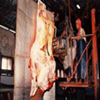 |
|
2002: Meat Lobby Plans Thwarted
|
|
Win for Animal Activists
Strong objections were sent by BWC in 2002 to the Prime Minister, Planning Commission, Agriculture Minister and the Press regarding India’s 10th 5-Year Plan which was trivialising animal killing. Also a public signature petition was organised together with like-minded organisations. The response received from the Government was very favourable as the Planning Commission totally rejected the proposals made by the meat lobby. |
|
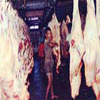 |
|
2001: Mini-Zoos Permanently Shut Down
|
|
Mini-Zoos and Travelling-Zoos Closed
In 2001 due to lack of recognition by the Zoo Authority of India as many as 64 mini-zoos and parks including travelling ones were shut down. Objections against mini-zoos had been registered periodically over the years after several of them had been investigated. |
|
 |
|
2001: Veg/Non-Veg Symbols on Packaged Foods made Mandatory
|
Labels on Packaged Foods
Consumer organisations and those working for vegetarianism like BWC kept approaching the Government of India pointing out that it was the right of each and every consumer to know whether vegetarian or non-vegetarian ingredients were used by manufacturers in processed foods and so the Prevention of Food Adulteration Act, 1954 should be amended. BWC’s first appeal was in 1978. Eventually in 2001 a Government Notification made it mandatory for manufacturers to use a symbol consisting of a colour filled circle/dot inside a large square in brown colour for non-vegetarian packaged foods and in green for vegetarian articles. In 2020 the Food Safety and Standards Authority of India changed the non-veg symbol from a dot to a triangle in order to help persons who were colour blind. |
|
 |
|
1998: All India House Journal Competition Award for Compassionate Friend
|
|
Special Award from Mayaram Surjan Foundation to BWC
BWC’s quarterly journal Compassionate Friend was first published in 1977. Distributed free to all members, it is the only animal rights magazine in India which contains unexaggerated and factual information. In 1998 the IInd All India House Journal Competition organized by the Mayaram Surjan Foundation (DNA Group) presented BWC with their Special Award in the category of publications for Non-Governmental Organizations. |
|
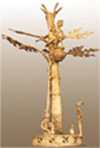 |
|
1998: Animal Sacrifice-free Village
|
|
Goat and Sheep Sacrifice Permanently Stopped
In 1998 BWC succeeded in persuading the inhabitants of the Udbur village in Karnataka against sacrificing hundreds of goats on the occasion of Makar Sankranti. Since then, they have never sacrificed animals. |
|
 |
|
1998: Export of Deer Antlers Banned
|
|
Protection for Deer
In 1998 export of manufactured articles and shavings of shed antlers of deer were prohibited by the Director General of Foreign Trade, Government of India. This was in response to representations made by BWC 1992 onwards. Along with shed antlers, hundreds of deer were illegally killed to meet the export demand. |
|
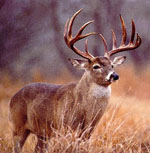 |
|
1998: Elephant Show in Mudumalai Sanctuary Stopped
|
|
Sanctuary sans Performances
A persistent follow-up by BWC resulted in revealing the illegality of the Elephant Show (a circus within a sanctuary) at Mudumalai, and in 1998 the Government ordered it to be immediately stopped. |
|
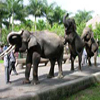 |
|
1997: Dissection made Optional in Gujarat Schools
|
|
Right of Choice for Students
BWC was one of the first organizations which during the 1980s seriously took up the issue of dissection in educational institutions. Finally in response to a petition supported by BWC and other organizations, a Delhi High Court judgment received in May 1997 ruled that School students have a right of choice whether or not to dissect living creatures. |
|
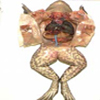 |
|
1996: Camels Banned in Mumbai
|
|
No “Joy rides” on Juhu Beach
In 1996 BWC played a leading role in obtaining a High Court ruling to stop the entry of camels into Mumbai and rehabilitated the existing ones in the Rajasthan desert so that the “Joy rides” on Juhu Beach became history. |
|
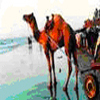 |
|
1992: Total Ban on Ivory Trade
|
Protection for All Elephants
For years BWC strongly objected to the Government’s policy of permitting trade in ivory of African origin. BWC felt that all elephants should be protected – not only our Indian elephants. Finally, the Government in 1992 imposed a total ban in trade in ivory, whether African or Indian, for export or for internal consumption. |
|
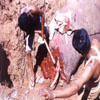 |
|
1991: Amendments suggested by BWC included in the Wildlife Protection Act, 1972
|
|
Suggestions for Legislation Accepted
BWC gave the Ministry of Environment & Forests (Government of India) a number of suggestions for amending The Wildlife (Protection) Act, 1972. Almost all the points raised by BWC including ban on hunting of wild life were incorporated in the new legislation entitled The Wildlife (Protection) (Amendment) Act, 1991: 44 of 1991. (The Act was again amended: 26 of 1993.) |
|
 |
|
1991: Based on BWC Report, Government Ban on Tigers, Lions, Panthers, Bears and Monkeys Performing in Circuses, etc.
|
Circuses Without Animals
BWC believes in circuses without animals. In 1991 the Ministry of Environment & Forests (Government of India) requested BWC to prepare a comprehensive report on “Circuses of India”. The Government of India used this report as evidence in the High Court Case wherein the Indian Circus Federation obtained a stay order on the Notification banning the use of tigers, lions, panthers, bears and monkeys in circuses. In 2001 the Supreme Court upheld a Kerala High Court judgement that prohibits circuses from training or using these five species of animals. |
|
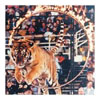 |
|
1989: Christian Animal Sacrifice Abandoned in Goa
|
|
Humans biting Piglets to Death Stopped
In 1989 BWC persuaded the Catholic Church to stop the age old barbaric custom of teenage boys dressed in tiger-skin biting a piglet to death at Terekol, Goa, in celebration of St John’s Baptism.
|
|
 |
|
1989: ICAR Karakul Lamb Project Closed
|
No Breeding for Killing
BWC was able to achieve unimaginable success after a period of 13 years when in 1989 the Indian Council of Agricultural Research reluctantly gave in to BWC’s pleas and scrapped their Karakul lamb project. Karakul lambs imported from the former USSR were being bred for slaughter within 48 hours of their birth. In order to forestall Karakul lamb farming in the country, BWC purchased the entire flock of sheep which were shifted to Deesa in Gujarat where they lived out their natural lifespan. |
|
 |
|
1987: Export of Frogs’ Legs Banned
|
Protection for Frogs
BWC relentlessly spent over a decade convincing the Government of India to stop exporting frogs’ legs, an exotic food in the West. The ban finally came into force in 1987. Facts such as the barbaric manner in which the frogs’ hind legs were chopped off and the ecological imbalance created were stressed. |
|
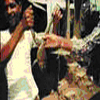 |
|
1984: Import of Animal Rennet Banned
|
Indian Cheese Vegetarian
As a result of a 7 year effort, in 1984 BWC persuaded the Government of India to impose a total ban on the import of animal rennet used in cheese-making. As this ban still exists, all Indian made cheese is free from animal rennet. |
|
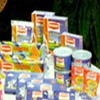 |
|
1978: Pegasus Award received by BWC
|